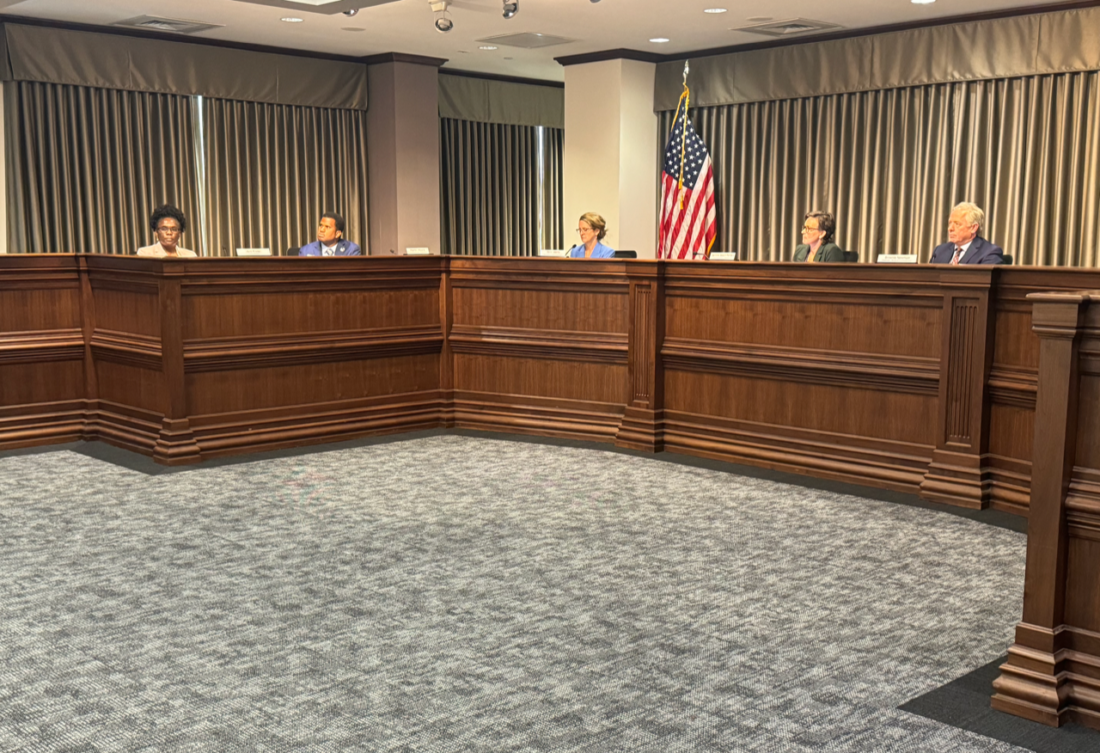After years of public scrutiny over Buncombe County’s tax assessment practices, an independent consulting firm hired by the Tax Assessor’s Office found the county’s appraisal process to be “blind and fair.”
The $60,000 report, authored by Kevin Keene of Keene Mass Appraisal Consulting, concluded that there was “no evidence of systemic racial or income bias,” “no evidence of overt political interference” and “no evidence of bias in the attitudes of the workforce.”
Tax Assessor Keith Miller and Keene presented the findings, gathered over the previous six months, to the Buncombe County Board of Commissioners at its briefing meeting July 16.
“I really want to commend this body. I’m here because there was an allegation that Buncombe County overassesses poor people and communities of color and underassesses primarily white wealthy communities. These allegations are common in the U.S.,” Keene said. “I am here because you pushed back and wanted to see what the actual truth was.”
The conversation surrounding the equity of Buncombe’s property assessments dates back three-plus years. In 2021, Asheville-based urban planning firm Urban3 performed a pro bono analysis of Buncombe’s tax assessment trends suggesting that higher-valued properties tended to be underassessed and lower-valued properties overassessed, based on market value. Urban3 Principal Joe Minicozzi presented that analysis to county commissioners and tax assessment staff in early 2021, eventually leading to the formation of an ad hoc tax assessment committee later that year.
While Minicozzi and Miller had several heated disagreements throughout the committee’s meetings — and Minicozzi and former Urban3 analyst Ori Baber disputed the way the committee was conducted — its work ultimately concluded with a slew of recommendations in July 2022, many of which have been implemented.
Commission Chair Brownie Newman told Xpress in 2023 that he was pleased with the recommendations from the committee but remained disappointed that they didn’t directly address the fundamental question of whether inequities exist in the system.
The Keene report
In January, Keene was hired to analyze the department’s processes and offer recommendations, as well as provide feedback to commissioners about the findings.
“It is my opinion that the practice of mass appraisal in Buncombe County is fair and not biased in favor of or against any demographically identifiable group,” Keene wrote in the executive summary. “Reports that have been published alleging or supporting allegations of bias suffer from serious deficiencies … rendering them unreliable as credible sources of information.”
Keene toured Buncombe to understand the county’s properties and geography, did an in-depth review of assessment processes and data, and conducted interviews with county staff and commissioners in the course of his research.
His findings did show some bias is entering the system through data collection, the valuation process, sales validation and neighborhood definitions — things that Keene said can be fixed. Additionally, the assessment office is understaffed, according to Keene.
“They are maximizing the use of technology, but the current level of staffing limits what the office can achieve and needs to be addressed,” he wrote.
Recommendations
Keene made 28 recommendations for adjustments to the department’s workforce, making tweaks to subsystems, data management, training and valuation methods, among others. Keene noted that the county was already working to implement changes in six of those categories.
One short-term recommendation that could affect the county’s 2025 revaluation was to implement a process to identify property sales to non-Buncombe County residents to gain better insight into the local housing market. Another was to create an appraiser position focused on luxury homes to increase the accuracy of those valuations. Miller said he has already implemented both recommendations.
Keene also made several recommendations to help the county increase the accuracy of its data collection and improve its customer service and access to the process for residents.
Longer-term recommendations include creating a dedicated analysis and modeling team, updating market area definitions and partnering with local universities to create assessment internship programs, according to the report.
“I think we have done a good job, and I think Mr. Keene gives us some ideas on how to do an even better job,” Miller said.
Keene will return in November after the county gets close to completing the 2025 revaluation to do a reanalysis of the new figures, Miller added.




Minicozzi and Baber should be billed for the $60,000. They had an agenda-driven report that had to be corrected by a consulting firm, which I assume, was paid for by tax payers.